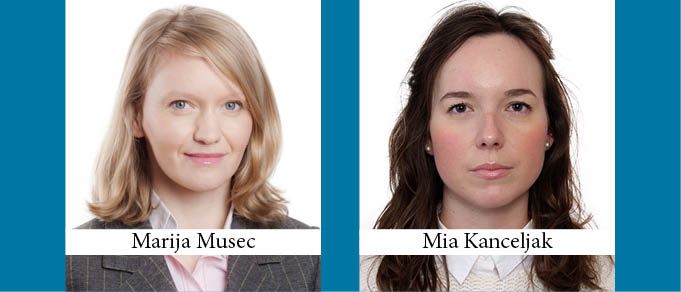After years of anticipation, the EU General Data Protection Regulation (GDPR) entered into force and took effect on May 25, 2018, bringing about several changes to Europe’s current data protection regime.
Keeping Track of Data Processing
Without going into too much detail, having seen the recent turmoil regarding the implementation of the General Data Protection Regulation and the fact that the subject has been more than widely debated, we wish to point out that, from our point of view, record keeping of data processing activities is a key aspect in a proper GDPR implementation scheme.
Personal Data Protection Under Turkish Law: An Overview of Compliance Projects
After Personal Data Protection Law number 6698 came into force (April 7, 2016) in Turkey, and following a two-year-transition period (which concluded on April 7, 2018), the compliance process has been initiated in regard to general principles and rules on processing of personal data.
IP for Software, or What One Should Know When Acquiring Proprietary Rights to Software
According to experts, Ukraine ranks fourth in the world in export of IT-products; i.e., software. It is not a rare phenomenon for Western counter-parties buying software to encounter a low level of pre-sale clearance. In other words, the Ukrainian sellers are not always able to confirm their title rights to the software they dispose of, potentially exposing foreign buyers to the risk of IP-related claims of third parties.
Significant Changes on the Hungarian Renewables Market: New Limitations and Opportunities
While no more applications for Micro Projects (those below 0.5MW) can be submitted under Hungary’s very generous mandatory off-take system since the end of April 2018, the Government seems to have acknowledged that the projects already licensed under the subsidy regime may not be physically implemented within the strict deadlines set forth in the original legislation. Therefore, it is now possible for entities that applied for licenses after January 1, 2016 to ask for a three- years extension to complete their projects without any sanction. This is good news for license-owners and potential investors, as they have a reasonable amount of time to manage the relatively burdensome permitting proceedings and can also secure project finance. This is also good news for the Hungarian state budget because the first heavy payments to the projects under the mandatory off-take system will be delayed by a few more years.
Facing the Public After the GDPR: How to Draft Privacy Notices
Based on the transparency requirements of the GDPR, companies must now provide more detailed information on data processing. The usual form of relaying this information to the public is through a privacy notice. Now that May 25, 2018 is fast approaching and companies are working towards GDPR compliance, such privacy notices must be finalized.
GDPR Misconceptions
The GDPR comes into effect on May 25, 2018. Since data processing concerns a wide range of activities, very few companies or entrepreneurs will be unaffected. Numerous articles and discussions have been posted about the GDPR in the media, some of which contain false or misleading information and therefore give rise to concern, especially considering the possibility of high penalties. Failure to adopt national implementing legislation does not help the situation either. In this article we would like to highlight some of this misleading information and explain the inaccuracies.
Now or Never: The Looming GDPR Deadline
The European Union’s General Data Protection Regulation is, according to the EU-hosted GDPR website, “the most important change in data privacy regulation in the past 20 years.” The Act, which was approved by the EU Parliament on April 14, 2016 and will become fully effective on May 25, 2018, was designed “to harmonize data privacy laws across Europe, to protect and empower all EU citizens’ data privacy, and to reshape the way organizations across the region approach data privacy.”
Private-Public Infrastructural Development of Construction Land
Implementation of large-scale real estate development projects almost always requires the simultaneous development of new or upgrades to existing public infrastructure necessary for the unimpeded use of the main project. Back in the old days, real estate development projects suffered, from time to time, from slow public infrastructure development since the relevant public authorities either had no interest in or had no available funds to develop the missing infrastructure.
PPPs vs. Concessions in Russia
Public private partnerships and concessions are effective tools to allow governments to partner with the private sector to develop and finance key infrastructure projects. These forms of collaboration are particularly relevant in Russia, where infrastructure investment needs are estimated by the World Bank to be about USD 1 trillion.
A Source of Optimism in Poland
In December 2017, CMS published the latest edition of its annual “Infrastructure Index” report, which compares the political, economic, and legal environments for investors in infrastructure in 40 countries and constitutes a guide to the world’s most attractive destinations for infrastructure investment. According to the report, the five most attractive destinations for infrastructure investment are the Netherlands, Canada, Germany, the United Kingdom, and Australia.
The New Concessions Law in Lithuania
The new Lithuanian Concessions Law came into force on January 1, 2018. With the new legislation, Lithuania has adopted European Parliament and Council Directive 2014/23/EU on the award of Concession Contracts, which establishes a balanced and flexible legal framework for the award of concessions and ensures effective and non-discriminatory access to the market for all economic operators. The new Lithuanian legislation aims to ensure transparency and fair competition in the development of infrastructure and the provision of services of general economic interest, as well as the attraction of national and EU-wide private investors to the public sector.
Condition Sine Qua Non of Large Scale Infrastructure Projects
The plans to regulate public-private partnerships have been in the program of the Montenegrin Government for at least ten years now. Despite its central importance to both the public and private sectors, a specific legislative and institutional framework in the area of PPPs is still not in place. Instead, PPPs are regulated by laws from several sectors and by the Law on Concessions. The main authoritative bodies in charge of implementing PPP projects are the Privatization and Capital Investment Council and the Concession Commission.
D4 Motorway PPP Coming to Market
It’s been quite a wait, but the D4 Motorway PPP project should be coming to market in April. The project will involve the design, construction, financing, operation and maintenance of a 36 km stretch of motorway between Pribram and Pisek in the south west of the Czech Republic, with operation and maintenance of an adjacent 16 km of existing motorway.
Review of PPP/Infrastructure in Bulgaria
Last year was a good year for the Bulgarian economy, which registered 3.6% GDP growth. The Bulgarian Government plans to further boost the economy in 2018, and initial projections vary from 3% to 4% growth. The main trigger for this will be the continuation of spending public funds on strategic infrastructure projects.
Advanced PPP Legislation But No Projects?
Croatia stands among the highest ranked countries when it comes to the compliance of its PPP legislative framework with international standards. Reports issued by international institutions such as the EBRD and the EIB have praised Croatia for its elaborate legal framework, strong institutional capacities, transparent procurement practices, easy access to justice (including arbitration), and a range of security instruments facilitating financing.
Public Private Partnership Projects in Bosnia and Herzegovina
The constitutional and legislative structure of Bosnia and Herzegovina (BiH) is complex since it is composed of two entities – the Republic of Srpska (RS) and the Federation of Bosnia and Herzegovina (FBiH) – and Brcko District (BD) as a separate unit, and the legislation is adopted on the state level, entity level, and – in FBiH – on the cantonal level. This means that in BiH as such there is no unified Law on PPP, but rather 12 laws on PPP. While the RS and BD adopted their PPP laws in 2013 and 2010, the FBiH drafted a Law on PPP in 2009 which remains in the adoption process. In addition, the cantons in the FBiH have their own set of PPP laws.
How Concession Can Improve the Sleepy Rollout of Broadband Internet-Access in Austria
Austria is definitely lagging behind in terms of Fiber-to-the-Home (FTTH) penetration: According to recent data of the FTTH Council Europe, only one country worldwide has a worse penetration rate than Austria, while other sources suggest there are two countries below Austria. For this reason many initiatives have been implemented on municipal and provincial levels to provide Austrian households and undertakings with high-speed Internet access in parts of the country where a purely commercial assessment would not justify such investments. Obviously this is not yet enough.











































